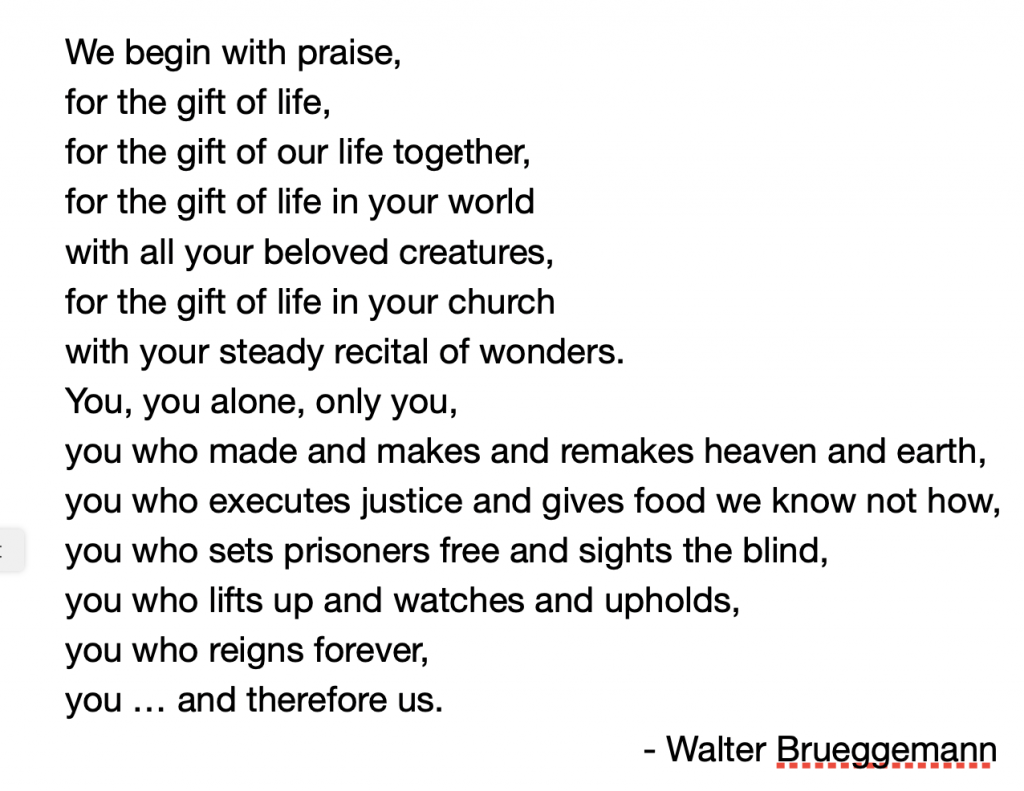
That the Lord is holy is beyond questioning. God is apart from all created things and all created beings. He is unique in perfection, unique in beauty, and most especially unique in sacredness. There is absolutely nothing ordinary about God at all. It is this quality – no doubt a quality that is far beyond human ability to fully grasp, let alone communicate – that God not only enjoys, but revels in. God is holy. He is pleased in being holy. He is passionate about being holy. The reader of Scripture soon learns that the Lord is also passionate about being known as holy. His Name – His reputation, His rule and His way – is one of holiness. Holiness is not only His character, it is how His Kingdom works, how He choses to govern and How His fame is spread.
For this reason the greatest of created beings – the four living creatures that hover around God’s throne day and night – are covered in eyes so that they might see God from every possible angle. They constantly look on Him and unceasingly prove His character and His actions. Writing in the Revelation of Jesus Christ, John saw these creatures in a vision, “In the center, around the throne, were four living creatures, and they were covered with eyes, in front and in back. The first living creature was like a lion, the second was like an ox, the third had a face like a man, the fourth was like a flying eagle. Each of the four living creatures had six wings and was covered with eyes all around, even under his wings.” Watching Him all the time, the creatures are filled with an inescapable conclusion, “Day and night they never stop saying: “Holy, holy, holy is the Lord God Almighty, who was, and is, and is to come.”
God’s children are all made in His likeness. It is our purpose to reflect Him in all we are and all we do. To be holy. To act holy. More than that, to cause all creation to be in wonder at the holiness of God. This is His constant encouragement to us. “I am the Lord your God; consecrate yourselves and be holy, because I am holy.”
We glorify God by focusing on His holiness, and we discredit both ourselves and Him if we are not holy. “You are to be holy to me because I, the Lord, am holy, and I have set you apart from the nations to be my own.” To not be holy is to fail at the purpose of bearing His image. But to not be holy as His people is to also profane the reputation of God, for as His people we also bear His Holy Name. This is who we are supposed to be – a holy people, made holy by focusing on God’s holiness and reflecting that holiness in all we do and say.
It is to that point the first petition in the Lord’s prayer is, “hallowed be your name”. In other words – Lord, because You are our Father, because You are above us in heaven (above us in position and in power and in glory), make your Name holy through us. Increase Your reputation through us. Increase Your rule and Kingdom through us. Manifest Your way through us. Cause Your children to reflect You all the more because Lord, You are our Holy Father.
Amen. May He do that today.
You can talk about the infinitude of God and not feel yourself a worm. But when you talk about the holiness of God, you have not only the problem of an intellectual grasp, but also a sense of personal vileness, which is almost too much to bear.
A.W. Tozer
APPLICATION: Intentionality
Are you reflecting God’s holiness?










